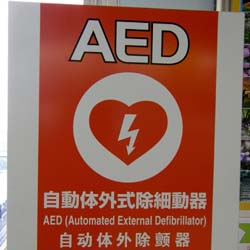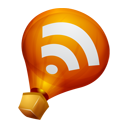
After nearly flat-lining from a huge AED recall, shares of Cardiac Science CSCX have risen somewhat on news that the company has reached a new recall agreement with the FDA, yet remain substantially below its intrinsic value. I was first attracted to CSCX because it has an excellent business as a manufacturer of quality cardiology products, including cardiac monitoring equipment (ECG, Holter and cardiac stress testing machines) sold mainly to hospitals, and automatic emergency defribillators (AEDs), which are installed in high traffic areas such as buildings, ships, airplanes etc. The AED segment of the market is especially attractive, as it has both higher margins than other CSCX products, and the greatest growth potential. CSCX is a pioneer in AED technology. Recognizing that AEDs must function correctly after long periods of idling, it was the first to incorporate periodic self-test capability into its AEDs. It also has FDA-tested proprietary software that accurately detect shockable heart rhythms, while not shocking non-lethal rhythms. CSCX has the largest market share in the US for cardiology testing equipment, and ranks number 2 in worldwide market share for AEDs (second to Philips), with 325k AEDs installed worldwide. When CSCX disclosed that its AEDs contained a potentially faulty component that was missed by its self-test software in 2009, its shares plunged, and I took the opportunity to build a position in the stock. I thought that that the FDA would not kill a company with an excellent track record, voluntarily disclosed its problems which had a low probability of occurring and has resulted in very few fatalities, and was working visibly and strenuously to solve the problem.
I was very nearly wrong. CSCX rushed out a software update for its AEDs, but the FDA felt that that company should have recalled and repaired all its AEDs, and issued a couple of warning letters about CSCX’s AEDs. The resulting uncertainty about CSCX’s most promising product caused the stock to plummet below $1 at its lowest point, and consumed huge amounts of management energy and company cash. Eventually, however, the FDA reached a compromise with CSCX, allowing the company to immediately recall and replace only frequently used AEDs operated by emergency personnel, and repair the rest of its AEDs via a software update. The recall debacle has been devastating to the company, with the company putting $32M in reserves for the recall ($10M of which has already been spent). Its cash position has declined from $30M before the recall, to $10M as of June 2010, and is projected to decline to zero or slightly below zero though the rest of 2010. To cope with the expected short-term cash drain, CSCX has established a $15M line of credit with a bank. With the recall uncertainty now behind the company, what are the future prospects of the company?
I believe that 2009 and 2010 represent a generational low in revenues for CSCX, combined with abnormally high expenses. In 2006, 2007, and 2008, Cardiac Science had revenues of $155M, $182M, and $206M respectively. In 2009, the recall hit and the company stopped shipping for 3 months, resulting in revenues of $157M. In 2010, the loss of its sole distributor in Japan, coupled with the chilling effects of the FDA warning letter in February and the continuing dismal economic climate, led to revenue stagnating at 2009 levels. On the other hand, fixed expenses rose from $75M in 2007 to $90M in 2008 (excluding non-cash impairment) and 2009, the result of a restructuring involving 12% of staff in 2009 and the cost of setting up setting up new quality control procedures in the wake of the recall. In 2010, expenses are expected to stay at $90M due to continuing produce assurance initiatives and elevated research and development costs related to new product launches. Management expects that expenses will decline in the second half of 2010 and in 2011, now that the recall action, restructuring and new product launches have been substantially completed. I now lay out an analysis of the valuation of CSCX under several different revenue and expense scenarios.
Bad case scenario. The economic downturn persists and revenue stays depressed at $150M. In order to survive, management cuts expenses to the bone. Historically, the company has a gross profit margin of 50%, suggesting that a gross profit of $75M is possible with $150M revenues. In 2007, the company was able to support revenues of $182M with fixed operating costs of around $75M, and this is before the 12% workforce reduction that was completed in 2009. Therefore, the company should barely break even under reasonably pessimistic assumptions.
Probable scenario. A gradually recovering economy and resumption of Japan revenues bring total revenue in 2011 to $180M. With a gross profit of $90M, and expenses of $75M, and a tax rate of 35%, net profit will be around $10M.
Valuation. CSCX currently trades at around $1.80, with 23.82M outstanding shares, implying a market capitalization of $43M. At the end of the recall, assuming that the $32M in recall reserves is fully spent, the company will be $10M in debt. Applying a conservative PE of 10 to the earnings of $10M, minus $10M in debt, we have a valuation of $90M, or a stock price of around $3.75. PE of greater than 10 is possible if the market views revenue as increasing, as is probable with the AED segment of the market. Furthermore, a buyout by another major medical device company would make a lot of strategic sense, especially now that the uncertainty generated by the recall issue has passed. Such a buyout is also expected to take place at elevated PE ratios, giving the operational synergies that can be reaped and the added pricing power of the buyer.
Disclosure : I have a long position in CSCX.

{ 3 comments… read them below or add one }
Great info & analysis…
Hello,
Where did you get the information on number of installed AEDs for Philips and CSCX?
Thank You,
Kyle
Hello,
My father has shares of CSCX. He bought them in 2010 but i can’t find the share on http://www.google.com/finance
He bought them in late 2010.
Since then, he never held his shares.
CSCX seems to have disappear…
Someone knows why ??
Thank you !
Christophe